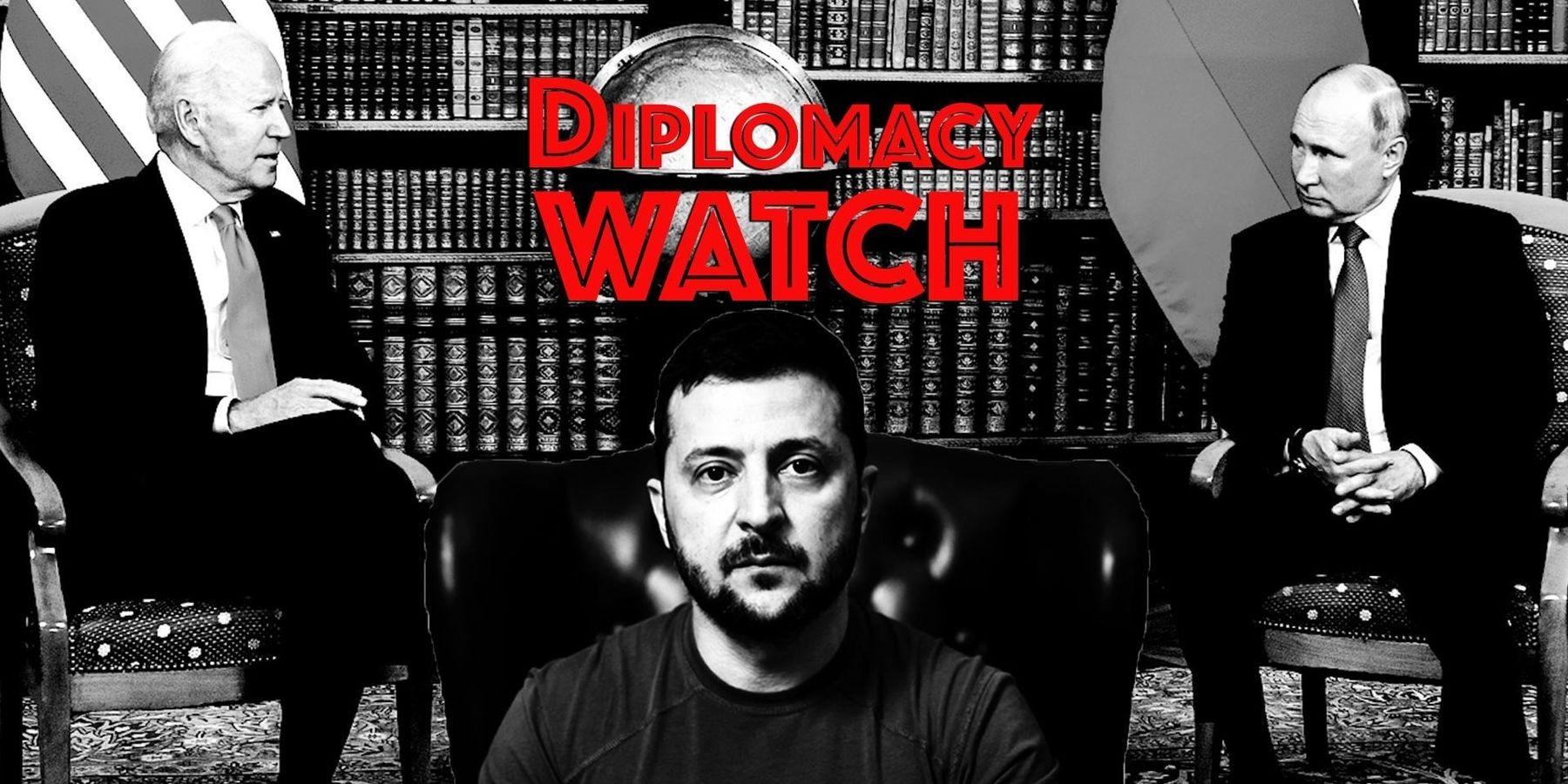Ambassadors from roughly 20 European countries are descending on the Republican National Convention this week, in an effort to win over leaders in the party who are skeptical of NATO and the European Union generally, but also of Washington’s continued commitment to funding Ukraine’s war effort.
“It’s our last-ditch pitch to the MAGA wing of the party,” one unnamed European official told Foreign Policy.
As the FP report notes, it is common for foreign diplomats to appear at both party’s conventions in election years. But, the report says there is “new level of urgency” this year, a sign both of the conventional wisdom that Donald Trump is the favorite to win the election, and of fears in Europe about what a second Trump presidency would mean for the transatlantic relationship.
The selection of Sen. JD Vance (R-Ohio), a prominent Ukraine aid skeptic, as Trump’s running mate earlier this week led to a series of headlines in major media outlets about growing “panic,” “alarm,” and “anxiety” in European capitals.
The two combatants in the war are also apparently reading the tea leaves. Bloomberg reported last week that Kyiv was hoping to organize its next “peace summit” before November’s election, and that, contrary to earlier meetings, Russia may be invited — perhaps conveying a new sense of urgency in preparation for the eventuality of a Trump victory.
Ukrainian President Volodymyr Zelensky said earlier this week that he was prepared to work with Trump and “not afraid” of Republicans winning the White House.
“We have bipartisan support and we have strong relations with the Republican part of the U.S. political system,” Zelenaky said during a press conference.
Russia, for its part, welcomed the news of a Trump-Vance ticket.
“He’s in favor of peace, in favor of ending the assistance that’s being provided,” Russian Foreign Minister Sergey Lavrov said of Vance on Wednesday. “And we can only welcome that because that’s what we need — to stop pumping Ukraine full of weapons. And then the war will end, and then we can look for solutions.”
Vance has been sharply critical of the Biden administration’s Ukraine policy during his short Senate tenure, voting against aid packages and calling for negotiations.
“By committing to a defensive strategy, Ukraine can preserve its precious military manpower, stop the bleeding and provide time for negotiations to commence,” he wrote in an April op-ed in the New York Times. “The White House has said time and again that it can’t negotiate with President Vladimir Putin of Russia. This is absurd. The Biden administration has no viable plan for the Ukrainians to win this war. The sooner Americans confront this truth, the sooner we can fix this mess and broker for peace.”
In other diplomatic news related to the war in Ukraine:
— Moscow offered a cautious response to Kyiv's potential invitation to a future peace conference. After initially saying they would reject the offer, comments from the Kremlin spokesman this week suggest that the door is not completely closed.
“The first peace summit was not a peace summit at all. So perhaps it is necessary to first understand what he means,” Dmitry Peskov said during a television interview on Monday, according to The Moscow Times.
— Trump would push for a rapid end to the war in Ukraine and has “well-founded plans” to accomplish this goal, according to Hungarian Prime Minister Viktor Orban. Orban, who has also urged a settlement to end the war and has opposed much of the EU’s support for Kyiv, has used the beginning of his six-month rotation as EU president to visit Zelensky, Putin, Chinese President Xi Jinping, and Trump to discuss how to end the war.
“Orbán’s description of Trump’s peace plan for Ukraine tallies with a policy paper on the conflict written by two allies for the former president who are expected to take senior national security roles in his administration if he wins November’s US election.” according to The Financial Times.
That plan, authored by former Trump national security council staffers Keith Kellogg and Fred Fleitz said that Washington should only continue to send aid to Ukraine on the condition that they participate in negotiations, while also threatening to increase support for Kyiv if Moscow refused to take part in talks.
— Almost 44% of Ukrainians believe that it is time for official negotiations with Russia to begin, according to a new poll from the Ukrainian online newspaper ZN.ua, compared to 35% who were opposed and 21% who remain undecided. This represented a significant uptick from a similar poll last year, in which only 23% indicated that they supported official talks, with 64% opposed.
At the same time, a large majority (83%) of respondents opposed Putin’s stated conditions for a ceasefire, while 61% said they were not prepared to make concessions to Russia in order to obtain a peace deal.
U.S. State Department news:
In a Tuesday press briefing, State Department spokesman Matt Miller was asked about the Trump ticket’s stance on the Ukraine war. Miller said he “shouldn’t respond to” what was happening on the campaign trail.
“I will instead just speak about our record and our record of support for Ukraine. And ultimately I think the question really comes down to not just what we support and what anyone else in public life supports, but what the American people support, and what we have seen is when it comes to Ukraine, the American people strongly support continued assistance to Ukraine,” he said. “They strongly support allowing Ukraine and helping Ukraine to defend itself against Russia’s aggression.”
















